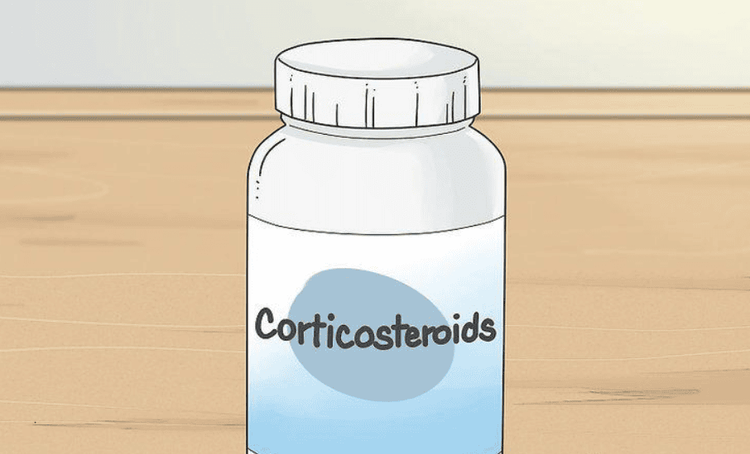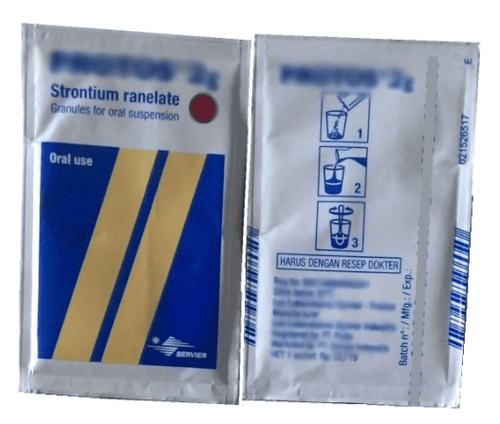This is an automatically translated article.
When prostate cancer spreads to other parts of the body, bone is almost always the first place. Bone metastases will be painful for the patient and lead to other dangerous problems, such as fractures, spinal cord compression or high blood calcium, even life-threatening.1. Overview
Prostate cancer is the most common disease in men, second only to lung cancer. The disease is increasingly encountered in younger men, but if detected early, the cure rate is high. In cases where patients are diagnosed with distant metastases - especially bone metastases, the survival rate is quite low.If the cancer has grown outside the prostate, stopping or slowing the spread of the tumor to the bone is the main goal of treatment. In cases where cancer has spread to the bones, pain relief and management of other complications are also a very important part of treatment.
Hormone therapy, chemotherapy, and vaccines can help control prostate cancer. However, to specifically target bone metastases and possible problems, some of the following specific treatments are used.

Ung thư tuyến tiền liệt là một bệnh phổ biến ở nam giới
2. Anti-osteoporosis Bisphosphonates
Bisphosphonates are drugs that work by inhibiting osteoclasts. These cells normally break down the hard mineral structure that helps keep bones strong. Bone cells often become overactive when prostate cancer metastasizes to bone, which can cause significant problems. Bisphosphonates may be prescribed to:Help relieve pain and lower high blood calcium levels caused by cancer that has spread to the bones Slow down the growth of cancer that has spread to the bones, delay or prevent fractures Help strong bones in men on hormone therapy. Zoledronic acid (Zometa) is a bisphosphonate commonly used for prostate cancer. This medication is given intravenously (IV), usually every 3 to 4 weeks, or every 12 weeks. In addition, other bisphosphonates are sometimes used to treat bone metastatic prostate cancer. Men taking this medication are advised to take a supplement containing calcium and vitamin D, to prevent problems caused by low calcium levels.
Bisphosphonates can cause side effects, including flu-like symptoms and osteoarthritis pain. Medicines can also cause kidney problems, so patients with poor kidney function may not be treated with these drugs.
A rare but very serious side effect of these drugs is osteonecrosis of the jaw (ONJ). When this condition is encountered, part of the jawbone of the patient will lose its blood supply and die, leading to tooth loss and infections that are difficult to treat. Some people develop osteonecrosis of the jaw during dental procedures during treatment. As a result, men are advised to have their oral health checked and any problems with their teeth or jaw treated before they start taking bisphosphonates. Maintaining good oral hygiene by flossing and brushing, ensuring the quality of dentures (if any), and having regular dental exams can also help prevent osteonecrosis of the jaw.
3. Denosumab . Anti-osteoporosis
Denosumab (Xgeva) is another drug that can help when prostate cancer has spread through the bones. Like bisphosphonates, denosumab also blocks osteoclasts, but works by a different mechanism. This medicine can be used to:Prevent or delay problems - like fractures, in men with cancer that has spread to the bones, which can be helpful even if zoledronic acid is no longer working. Strengthens bones in men undergoing hormone therapy. The drug is usually injected under the skin at a frequency of every 4 weeks. Men taking this medication are also advised to take supplements containing calcium and vitamin D to prevent problems caused by low calcium levels.
Common side effects include:
Nausea Diarrhea Feeling weak or tired. Like bisphosphonates, denosumab can also cause osteonecrosis of the jaw. Therefore doctors recommend taking the same precautions as mentioned, including examining your teeth and jaw before starting to use the drug.
4. Corticosteroids
Some research suggests that corticosteroid medications (such as prednisone and dexamethasone) may help reduce bone pain in some men with prostate cancer that has spread to the bone, as well as help lower PSA levels. These drugs are often part of the treatment of prostate cancer with bone metastases.
Corticosteroid giúp giảm đau xương ở bệnh nhân mắc ung thư tiền liệt tuyến di căn xương
5. External radiation therapy
Radiation therapy can help relieve bone pain, especially if the pain is limited to one or only a few areas of bone. Radiation can target tumors on the spine, helping to relieve pressure on the spinal cord in some cases, while also preventing paralysis. Radiation therapy also works to relieve other symptoms by shrinking tumors in many parts of the body.6. Radiopharmaceuticals
Radiopharmaceuticals are drugs containing radioactive elements, which are injected into a vein and deposited in damaged areas of bone to emit radiation that destroys cancer cells. These drugs can be used to treat prostate cancer that has spread to multiple bones. Unlike external radiation, radiopharmaceuticals can reach all affected bones at once.Radioactive drugs commonly indicated in the treatment of prostate cancer with bone metastases include:
Strontium-89 (Metastron) Samarium-153 (Quadramet) Radium-223 (Xofigo) All of the above drugs work. pain relief from bone metastases. Radium-223 has also been shown to help men with prostate cancer that has only spread to the bones (not to other organs such as the lungs) live longer. For these cases, radium-223 is usually in the early stages of treatment.
Side effects of these drugs are reduced blood cell counts, increased risk of infection or bleeding, especially in people who already have low blood cell counts. Other side effects have also been detected in some cases, so ask your doctor for more specific advice.
7. Surgery
Kyphoplasty is a minor surgery that helps stabilize the collapsed, painful, and weakened spine caused by metastatic prostate cancer. In this procedure, your doctor will make a small incision in the middle of your back and place a balloon in the weak bones in your spine. The balloon will be filled with air and then a bio-cement mixture to stabilize the spine.
Kỹ thuật tạo hình và bơm xi măng sinh học cột sống giúp ổn định xương
8. Painkillers
Pain relievers are very effective if prescribed correctly, especially when taken regularly. But the medicine will not be effective if used only when the pain has become severe.If you have bone pain from metastatic prostate cancer, it is important that you get treatment to feel better and focus on improving your quality of life. Don't hesitate to talk about your pain, other symptoms, or any concerns with your healthcare provider. Pain and most other symptoms of prostate cancer can usually be well controlled.
Vinmec International General Hospital with the most advanced equipment, a team of top doctors with many years of experience in the field of urology is the perfect healthcare address for you and your loved ones. To detect the possibility of prostate cancer early, you can refer to the prostate cancer intensive examination package at Vinmec hospitals and clinics nationwide.
If you have a need for consultation and examination at Vinmec Hospitals under the national health system, please book an appointment on the website for service.
Please dial HOTLINE for more information or register for an appointment HERE. Download MyVinmec app to make appointments faster and to manage your bookings easily.
Reference source: cancer.orgMORE:
Biopsies for rapid diagnosis of prostate cancer Robotic surgery to "blow" prostate cancer for Japanese doctors Prostate cancer intensive examination package













